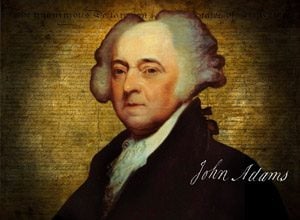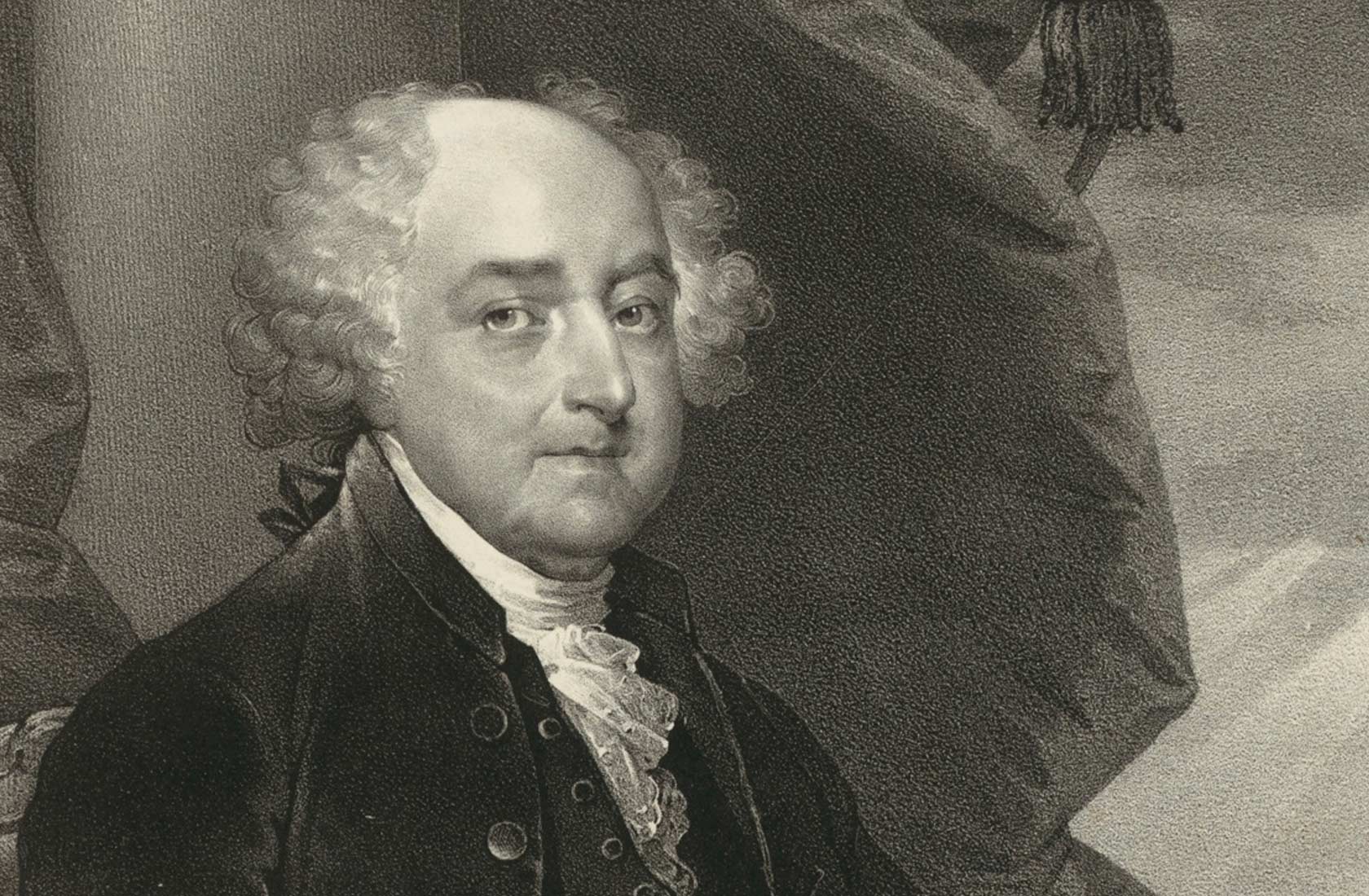John Adams (October 30 [O.S. October 19] 1735 – July 4, 1826) was an American patriot who served as the second President of the United States (1797–1801) and the first Vice President (1789–97). He was a lawyer, diplomat, statesman, political theorist, and, as a Founding Father, a leader of the movement for American independence from Great Britain. He was also a dedicated diarist and correspondent, particularly with his wife and closest advisor Abigail.

He collaborated with his cousin, revolutionary leader Samuel Adams, but he established his own prominence prior to the American Revolution. After the Boston Massacre, he provided a successful (though unpopular) legal defense of the accused British soldiers, in the face of severe local anti-British sentiment and driven by his devotion to the right to counsel and the protect[ion] of innocence.
Adams was a delegate from Massachusetts to the Continental Congress, where he played a leading role in persuading Congress to declare independence.
Adams was the primary author of the Massachusetts Constitution in 1780 which influenced American political theory, as did his earlier Thoughts on Government (1776).
Adams’s credentials as a revolutionary secured for him two terms as President George Washington’s vice president (1789 to 1797) and also his own election in 1796 as the second president. In his single term as president, he encountered fierce criticism from the Jeffersonian Republicans, as well as the dominant faction in his own Federalist Party, led by his rival Alexander Hamilton.
Thomas Jefferson
In 1800, Adams lost re-election to Thomas Jefferson and retired to Massachusetts. He eventually resumed his friendship with Jefferson upon the latter’s own retirement by initiating a correspondence which lasted fourteen years. He and his wife established a family of politicians, diplomats, and historians now referred to as the Adams political family. Adams was the father of John Quincy Adams, the sixth President of the United States. He died on the fiftieth anniversary of the adoption of the Declaration of Independence, and the same day as Jefferson. Modern historians in the aggregate have favorably ranked his administration.
Novanglus
Adams authored Novanglus; or, A History of the Dispute with America, From Its Origin, in 1754, to the Present Time; he repudiated the essays by Daniel Leonard which in turn defended Hutchinson’s arguments for the absolute authority of Parliament over the colonies. In Novanglus (New Englander) Adams gave a point-by-point refutation of Leonard’s essays, and then provided one of the most extensive and learned arguments made by the colonists against British imperial policy.
It was a systematic attempt by Adams to describe the origins, nature, and jurisdiction of (unwritten) British concepts of constitutionality. Adams used his wide knowledge of English and colonial legal history to argue that the provincial legislatures were fully sovereign over their own internal affairs, and that the colonies were connected to Great Britain only through the king.



